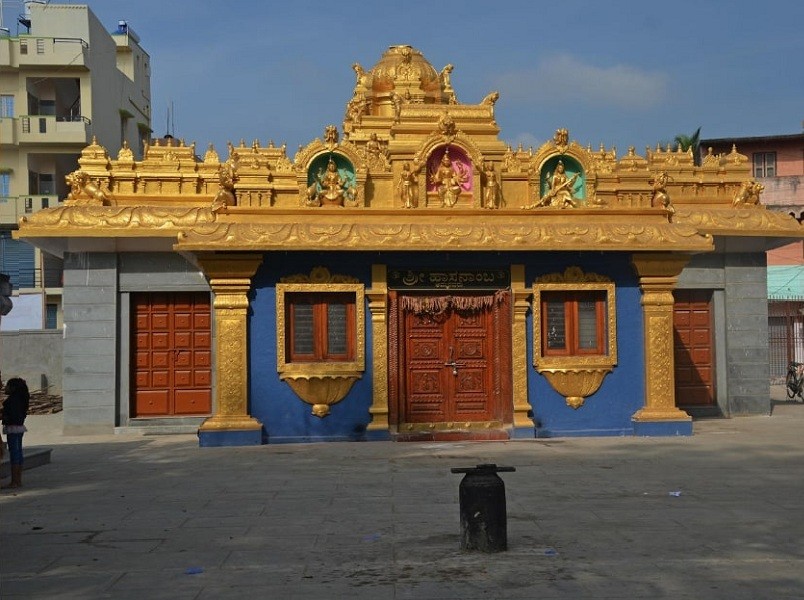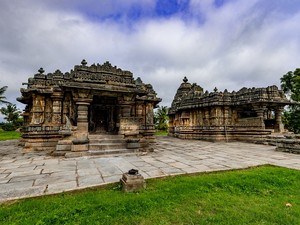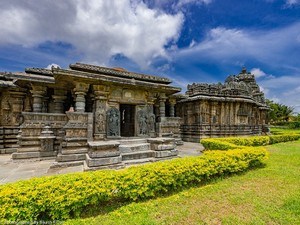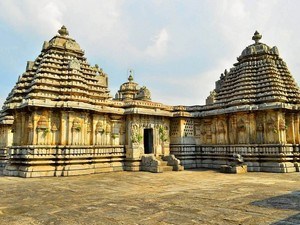Hasanamba Temple, Hassan - Timings, Festivals, History, Darshan, Pooja Timings
 #1 of 9 Places to Visit in Hassan
#1 of 9 Places to Visit in Hassan
 Distance (From Hassan Railway Station): 3 Kms
Distance (From Hassan Railway Station): 3 Kms
 Trip Duration (Including Travel): 30 Mins - 1 Hr
Trip Duration (Including Travel): 30 Mins - 1 Hr
 Place Location: On The Bangalore-Mangalore Road
Place Location: On The Bangalore-Mangalore Road
 Transportation Options: Cab / Auto
Transportation Options: Cab / Auto
 Travel Tips: The temple opens for devotees only for 10 days during Diwali and closes three days after the celebration of Balipadyami.
Travel Tips: The temple opens for devotees only for 10 days during Diwali and closes three days after the celebration of Balipadyami.
At a distance of 3 km from Hassan Railway Station, Hasanamba Temple is a Hindu temple located in Hassan, Karnataka. Situated on the Bangalore-Mangalore Road, it is one of the popular places of pilgrimage in Karnataka, and among the must include places in Hassan Tour Packages.
Dedicated to the Goddess Shakti or Amba, Hasanamba Temple was built in the 12th century AD. The goddess is an anthill or hutta which resembles the deity of Hassanamba as Goddess Parvathi. She is regarded as the presiding deity of Hassan, and in fact, the town name, Hassan, is derived from the goddess Hasanamba. Earlier, Hassan was known as Sihmasanapuri and later it got the name of Hassan when the goddess idol with its face wearing a pleasant smile (Hasana Mukhi) was found during the rule of the Hoysala dynasty in the 12th century AD. It is one of the most popular places to visit in Hassan.
The architecture of the temple is a reflection of Hoysala's magnificence. According to the mythology, once when the seven Maatrukas (Brahmi, Maheshwari, Kaumari, Vyshnavi, Varahi, Indrani, and Chamundi) came floating to the South of India, they were taken aback by the beauty of Hassan and decided to make it their home forever. Maheshwari, Kaumari, and Vyshnavi took residence in the three anthills inside the temple, Brahmi in Kenchamma's Hosakote, while Indrani, Varahi, and Chamundi chose the three wells in Devigere Honda.
There are three major temples on the premises of this temple dedicated to Darbar Ganapati, Hasanamba, and Siddeshwara. The main tower at Sri Hasanamba has been newly constructed in Dravidian style. There are paintings that represent various mythological figures such as the painting of Ravana with nine heads playing the veena. Another prominent attraction here is the shrine dedicated to Kallappa.
The temple opens for devotees only for 10 days during Diwali and closes three days after the celebration of Balipadyami. A large number of devotees come here during Diwali to seek blessings and get a glimpse of the deity. The devotees often offer raw rice and light a lamp when the temple is closed. Many have claimed that the rice never gets rotten and the lamp always burns until it is opened in the next year.
Timings: 7 AM - 10 PM
Entry: Free, Rs. 300 for Special Darshan, & Rs. 1000 for Direct Darshan















